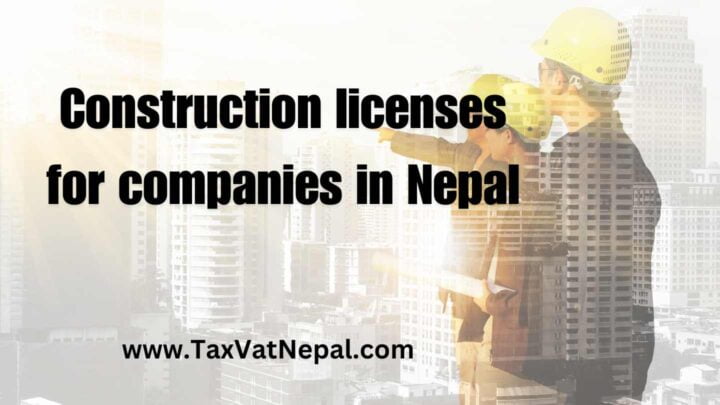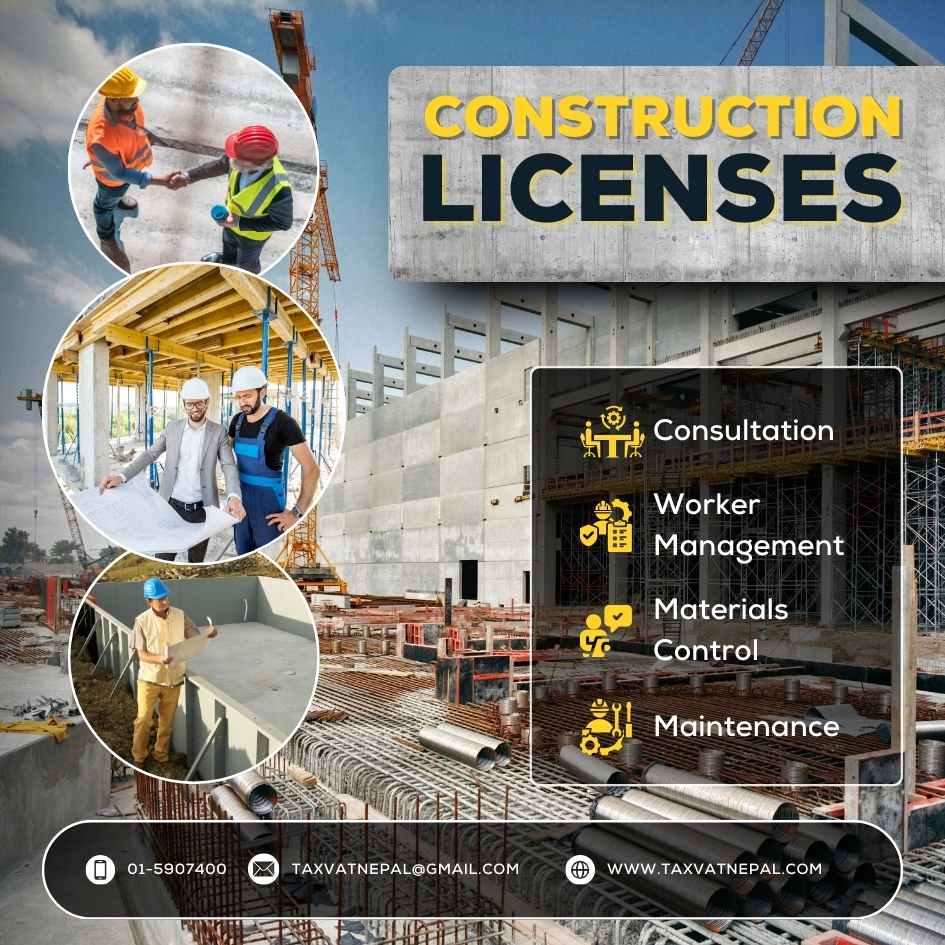
Construction Licenses for Companies in Nepal: A Comprehensive Guide
The construction industry in Nepal is a vital component of the nation’s economic development, playing a crucial role in infrastructure development, urbanization, and employment generation. However, establishing a construction company in Nepal requires navigating regulatory and administrative procedures to obtain the necessary licenses. This article provides a detailed overview of the process, requirements, and key considerations for acquiring construction licenses in Nepal.
Legal Framework and Regulatory Bodies
The primary legal framework governing the construction industry in Nepal includes:
- Construction Business Act, 2055 (1998)
- Public Procurement Act, 2063 (2007)
- National Building Code
The main regulatory bodies responsible for issuing construction licenses are:
- Department of Urban Development and Building Construction (DUDBC)
- Local Municipalities
- Public Procurement Monitoring Office (PPMO)
Types of Construction Licenses
In Nepal, construction licenses are categorized based on the nature and scale of construction activities. The main types include:
- Class A License: For large-scale construction projects with no limit on the project size.
- Class B License: For medium-scale construction projects up to NPR 100 million.
- Class C License: For smaller construction projects up to NPR 30 million.
- Class D License: Issued by Local Municipalities
- Specialized Construction Licenses: For specialized fields such as electrical, mechanical, plumbing, and civil works.

Steps to Obtain a Construction License
- Register the company with the Office of the Company Registrar.
- Obtain a PAN (Permanent Account Number) from the Inland Revenue Department.
- Prepare Required Documents:
- A detailed business plan.
- Company registration certificate.
- Tax clearance certificate if required.
- Provide proof of technical qualifications and key personnel experience.
- Financial statements and proof of capital.
- Equipment and machinery details.
- Application Submission:
- Submit the application form and the required documents to the Department of Urban Development and Building Construction (DUDBC) or relevant local authorities.
- Review and Inspection:
- The regulatory body reviews the application and conducts inspections to verify the information provided.
- A technical evaluation committee may assess the company’s capability to undertake construction projects.
- License Issuance:
- Upon satisfactory review and inspection, the license is issued.
- The license is typically valid for one year and must be renewed annually.
Renewal and Compliance
- Annual Renewal: Construction licenses must be renewed annually. The renewal process involves submitting updated financial statements, tax clearance certificates, and a renewal application form.
- Compliance: Licensed construction companies must adhere to the National Building Code, environmental regulations, and safety standards. Regular inspections and audits ensure compliance.
Challenges and Considerations
- Bureaucratic Hurdles: The licensing process can be time-consuming due to bureaucratic inefficiencies and administrative delays.
- Regulatory Changes: Frequent changes in regulations and policies can create uncertainty and require companies to stay updated on the latest requirements.
- Technical Expertise: Companies must have qualified technical staff to meet the regulatory standards for obtaining and maintaining a construction license.
Conclusion
Acquiring a construction license in Nepal involves navigating a detailed and sometimes complex regulatory framework. However, companies can successfully obtain the necessary operating licenses with thorough preparation and understanding of the requirements. Engaging with legal and business consultants familiar with the Nepali construction industry is advisable to streamline the process and ensure compliance with all regulations. As the country continues to develop, the construction sector offers significant opportunities, making obtaining proper licensing a worthwhile investment.
